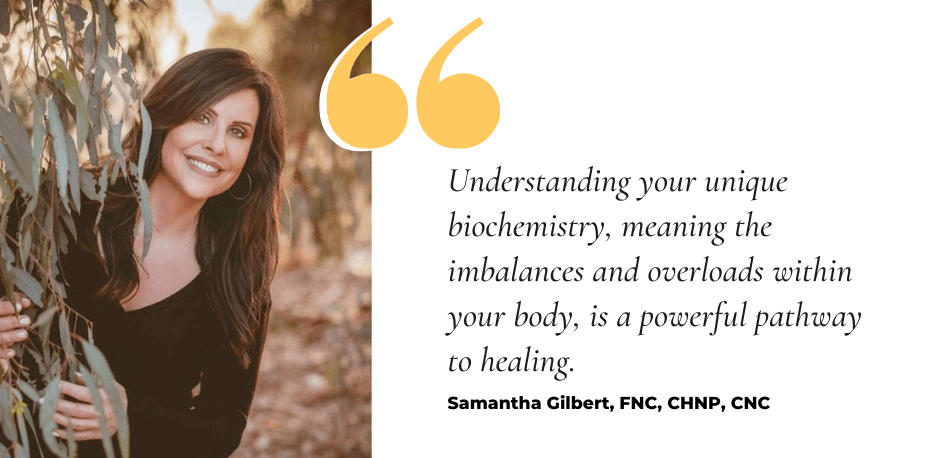One month in, my client Amanda told me: “I had no idea my anxiety, racing thoughts, and fatigue were due to being severely undermethylated and overloaded with copper!”
Her lab tests had just confirmed the underlying causes of her suffering.
When Amanda first came to me for nutritional therapy counseling, she was frustrated with doctors that told her nothing was wrong, she was a healthy young woman, and that basically she was just overreacting.
“I know I’m not making this up,” she told me. “I can feel in my body that something is off, I just don’t know what it is or how to pinpoint it.”
Although lab work from her doctor showed no abnormalities, I knew that going deeper and supporting her in a way she had not experienced before was the key to figuring it all out.
After 6 months of working together, Amanda told me “My brain feels better, which allows my body to feel better. I no longer struggle with energy issues and my daily anxiety is gone. This is so liberating.”
If Amanda’s story resonates with you, you’re not alone. I hear this every week in my clinic and it’s a sad aspect of our global healthcare system. The good news is that healing is always possible, we just need to know where to look.
In our first episode, I shared what nutrients are and how they impact both the body and the brain.
In today’s episode, I’m going to give you a crash course into some of the underlying causes of what I call the Big 5 Hurting Our World – depression and anxiety, autism, eating disorders, OCD, and ADHD – and how these root causes have a significant impact on the way you think, act, and feel.
We’re going to dive into what nutrient deficiencies and overloads are, and how they impact the brain and body. By the end of this episode, you’ll have an entirely new understanding of how nutrient deficiencies and overloads may be affecting you.
Listen to the full episode to hear:
- What nutrient deficiencies and overloads are and how they impact the brain and body
- What the underlying causes of depression and anxiety, autism, eating disorders, OCD, and ADHD
- What 5 root causes I work with in my clinic:
Resources:
- Nutrient Power: Heal Your Biochemistry and Heal Your Brain by Dr. William J. Walsh







2 Responses
If I have multiple nutrients issues, such as high copper, mthfr, pyrrole disorder and low zinc, does the food recommendations change? Do they contradict eachother if I have more than one of these issues?
Hi Natalie,
Food recommendations are based on chemistry but they do not need to contradict one another when we are treating multiple imbalances. There is a way to do this safely and effectively.